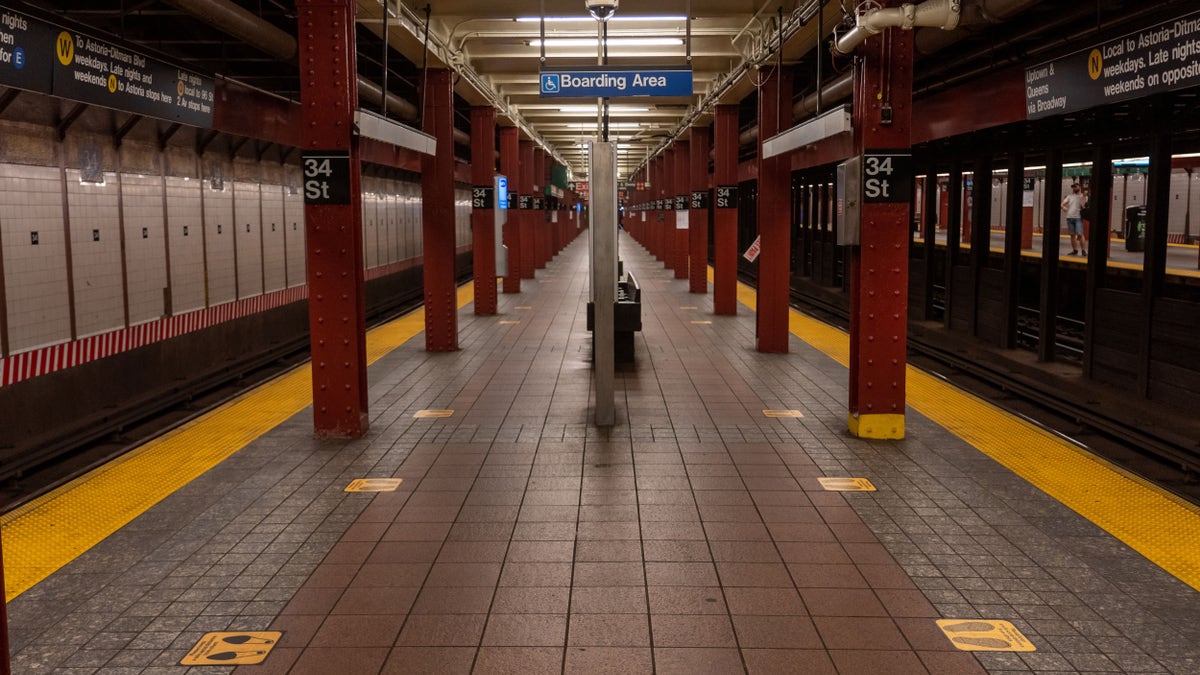Fox News Flash top headlines for June 10
Fox News Flash top headlines are here. Check out what's clicking on Foxnews.com.
Millions of people who rely on public transportation to commute to work will face a broad range of challenges as states reopen amid the coronavirus pandemic.
Data from JLL's new Workplace Experience Survey reveals that getting to and from work is a top concern -- with many wondering how the systems will be disinfected and cleaned, whether social distancing will even be possible and which cities will be most impacted by these challenges.
A full 34 percent of respondents who previously took public transportation to work say they'll seek alternate forms of commuting after the pandemic.
Many cities in North America, including New York, Chicago, Washington, DC, Toronto, San Francisco, and Boston, have populations that rely heavily on public transportation for workforce commutes.

A nearly empty subway station platform is seen in Herald Square's subway station on the first day of New York City's reopening. (Photo by Ron Adar/SOPA Images/LightRocket via Getty Images) (Getty Images)
In addition, a full 33 percent of office inventory in all of North America is concentrated in a dozen transit-oriented metropolitan areas.
SCIENTISTS CONDEMN RACISM IN #STRIKEFORBLACKLIVES ACTION WORLDWIDE THIS WEEK
The report also identified a range of hurdles that cities will be grappling with in the coming months -- including a very limited amount of parking spaces in the most transit-heavy cities and a large amount of unproductive time on long commutes.
"“We need to reimagine what the future of work and commuting looks like,” said Christian Beaudoin, Director of Research, JLL, in a statement. “There will not be a fundamental shift away from public transportation necessarily, but COVID-19 created an atmosphere in which adaptability is key to move forward."
Among the strategies recommended by the report: a switch to dual-location or hub offices, an extension of remote work for those employees who can and wish to remain outside the office, flexible workspaces and shuttle services. For developers and municipal officials, it recommends enhanced transit capabilities, better usage of sidewalks and new bike lanes.
"By enhancing public transit infrastructure, offering more flexibility and providing transportation alternatives, employees will feel more comfortable and safe returning to the office when the time comes," he added.









































